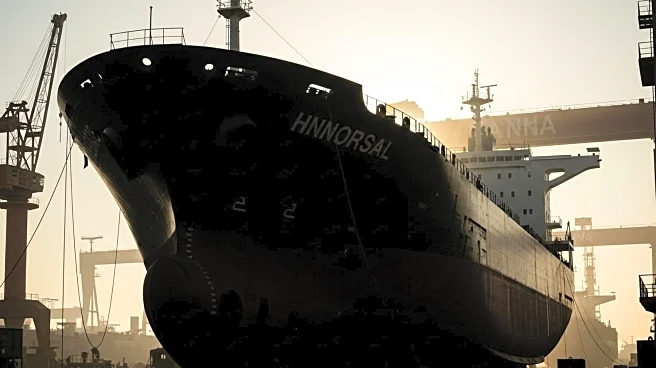What's Happening?
The global ship recycling market is experiencing a slowdown as August comes to a close. Despite expectations of increased activity due to post-COVID overaged ships, the supply of tonnage has decreased, with fewer arrivals at Indian sub-continent recycling facilities. Economic factors, including fluctuating oil prices and currency instability, are contributing to the market's sluggishness. The Baltic Dry Index has shown mixed results, with smaller vessel classes performing better than larger ones, which are facing weak iron ore demand.
Why It's Important?
The slowdown in ship recycling has implications for the maritime industry, particularly in regions reliant on recycling activities for economic growth. The decrease in tonnage supply affects steel prices and market dynamics, with currency fluctuations adding to the uncertainty. The situation highlights the challenges faced by the industry in adapting to post-pandemic conditions and navigating geopolitical and economic factors. The performance of smaller vessel classes suggests a shift in market focus, potentially impacting future investment and operational strategies.
Beyond the Headlines
The current market conditions underscore the need for strategic adaptation in the ship recycling industry. Companies may need to explore alternative revenue streams and enhance operational efficiency to mitigate the impact of economic fluctuations. The situation also raises questions about the sustainability of current practices and the potential for innovation in recycling technologies. As the industry grapples with these challenges, stakeholders must consider long-term strategies to ensure resilience and growth.








